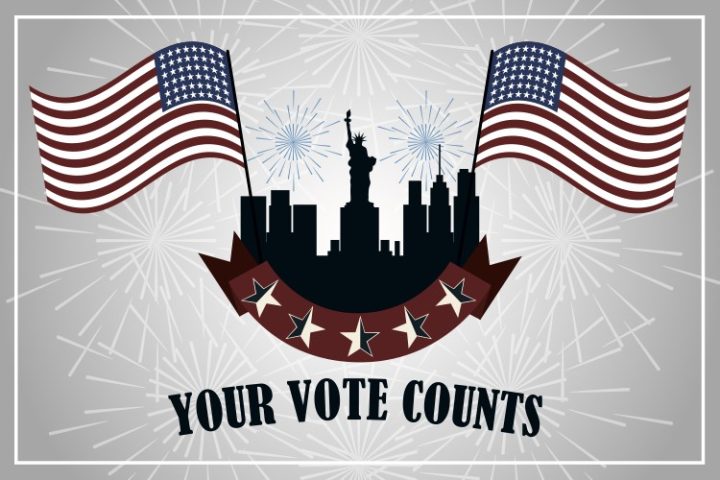
New York Mayor Eric Adams on Sunday allowed legislation that will allow over 800,000 noncitizens to vote in municipal elections to automatically become law.
Opponents of the law, which was passed by the City Council, have already vowed to challenge it. Unless a judge ultimately stops the legislation from being implemented, New York will be the biggest city in the nation to give the vote to noncitizens, although 15 municipalities across the country currently allow it.
Under the new law, the Board of Elections must now begin drawing an implementation plan by July. That includes voter registration rules and provisions for the creation of separate ballots for municipal races in order to prevent noncitizens from voting in state and federal races.
The legislation allows noncitizens to vote who have been lawful permanent residents of the city for at least 30 days, along with “Dreamers” and all those authorized to work in the U.S., to participate in elections for mayor, city council members, borough presidents, comptroller and public advocate.
Noncitizens will have the chance to vote for the first time in 2023.
“We build a stronger democracy when we include the voices of immigrants,” said former City Councilmember Ydanis Rodriguez, a leading advocate for the legislation.
Rodriguez has now been appointed by Adams as Transportation Commissioner.
Adams had previously cast uncertainty over the legislation’s fate when he voiced concern about the month-long residency standard, but later affirmed that those concerns did not mean he would veto.
Because Adams failed to take action within his 30-day time limit, it automatically became law at midnight Sunday.
“I believe that New Yorkers should have a say in their government, which is why I have and will continue to support this important legislation,” the Democrat mayor said in a statement Saturday night, adding that a dialogue with colleagues dispeled his earlier concerns.
Former Mayor Bill de Blasio expressed similar concerns before leaving office, but did not move to veto the bill.
Some states, including Alabama, Arizona, Colorado, and Florida, have enacted rules to preemptively prohibit laws like the one passed in New York City.
New York Republicans have blasted the law.
Chair of the New York State Republican Committee Nick Langworthy called the bill “perhaps the worst idea out of New York City Democrats ever.”
“This radical legislation is unconstitutional, un-American and downright dangerous. This not only will undermine the credibility of local city elections but will undoubtedly interfere with the integrity of state and national elections across New York State. Democrats do not get to create their own brand of citizenship to manipulate elections,” Langworthy stated, pledging to “use every single legal method to stop it.”
Minority Leader Joe Borelli joined Langworthy in condemning the legislation, noting that the New York Democrats will be granting a right to vote to people who are citizens of other countries, and have a right to vote there. “If they want to vote here, they should go through the process of becoming citizens, because that is how you show a real commitment to being a part of this city and this country,” he added.
Democrats also want to radically reshape voting at the federal level. Their proposed “For the People Act” would force states to eliminate safeguards against electoral fraud with the ostensible aim of promoting democracy, but which critics say would weaken election integrity and result in the federalization of elections.
According to a summary of the proposal, the bill “expands voter registration and voting access” by requiring automatic and same-day registration while limiting states’ and localities’ ability to purge voter rolls. It would also mandate nationwide universal mail-in voting and put an end to voter ID requirements.
The challenges of passing a bill as ambitious as the For the People Act has led Democrats to release updated versions of “election reform” in the hopes of finding better success within their slim congressional majority. They are expected to soon bring the Freedom to Vote Act, which died in the Senate in October, back for reconsideration.
Provisions found in the Freedom to Vote Act that aren’t in the For the People Act include allowing certain election officials to sue if they are undeservedly removed from office, increasing protections against intimidating election workers, and allowing voters to sue if their vote is not counted.
Democrats simultaneously want to pass the John Lewis Voting Rights Advancement Act, which is intended to stop “discrimination” against nonwhite voters.




